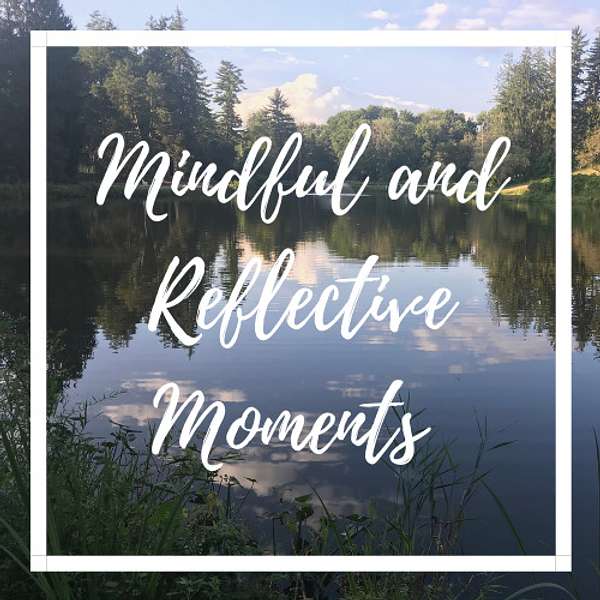
Mindful and Reflective Moments
Mindful and Reflective Moments
Emily Schaffer '23 - "Mindfulness in Times of Uncertainty and Upset"
Right now, many of us are facing more challenges and uncertainties than ever before. Mindfulness can help to alleviate some of the difficult emotions and sensations that come with these challenging situations.
Speaker 1:
Welcome to mindful and reflective moments. And thank you for joining us. In each episode, a Vassar College community member will share a mindfulness practice and explore how their practice sustains them during these uncertain times. We hope that you enjoy the podcast and find it helpful and meaningful.
Emily:
Hello everyone. Welcome to today's Mindfulness podcast. My name is Emily and I'm a sophomore here at Vassar. Today, I'm going to be talking about mindfulness in times of uncertainty and upset, and then lead a short guided meditation. It's an understatement to say that the last year has been extremely uncertain and difficult. On top of there being a pandemic to deal with, everyone has been going through their own specific upsets. I know this year has been the hardest year of my life, and I'm sure some of you can agree. I wanted to talk about how my personal experience with meditation has helped me tremendously in getting through this year and how mindfulness could potentially help you as well.
Emily:
My whole life I've been dealing with pretty bad anxiety. I'm always pretty much on edge and nervous. A few years ago, I saw a YouTube recommendation of all things for a mindfulness meditation. I used to scoff at meditation when loved ones or mental health advocates brought it up. I thought that there was no way I wanted to sit still and lose the one thing, keeping me from spiraling, my distractions. I always thought if I could keep moving, then I would be okay. One day though, my best friend asked to try one with me. I didn't want to be rude. So I agreed. So we sat and listened to this 10 minute guided meditation. Well, I remember coming out of that session, feeling this sense of calm, that I hadn't in a very long time and knew this should be a part of my life. Of course, dealing with baseline anxiety and the terrors of what this year has been is an entirely different thing. But meditation has been one tool that I have that can help me to remember the present.
Emily:
I think a common misconception of mindfulness is that you are not allowed to think about anything except breathing. Although this is perhaps the eventual goal, this is certainly not a requirement. I think of mindfulness as a way of accepting and letting go of thoughts rather than pretending they don't exist. It is okay to feel negative emotions. It is okay to be having a really hard time. Mindfulness can simply provide a break from these thoughts and help us to accept and hopefully decrease the frequency of them. Meditation can truly be for anyone, not just those who are already in a good place. With all that being said, I'm going to move on to the guided meditation. I'm going to invite everyone to find a comfortable position in their chair and to close your eyes. Try to relax your mind and body. Scan throughout your whole body to see where you are holding on to tension and try to let it go.
Emily:
Let your forehead be smooth, your eyes be soft. Let there be a slight space between your teeth. Let your shoulders come away from your neck. Let your stomach be soft and unclenched. Let your arms and legs rest heavily and comfortably. Now, I'm going to invite you all to take a few deep breaths. We're going to breathe in for four, hold for four, and breathe out for eight. Ready? And in 2, 3 4, hold 2, 3, 4, and out 2, 3, 4, 5, 6, 7, 8. And again, in 2, 3, 4, hold 2, 3, 4, and out 2, 3, 4, 5, 6, 7, 8. Great. Now, continue for a bit to take breaths in whatever way is comfortable for you. Throughout the rest of this practice, I'm going to invite you to focus on the breath. If you feel your mind, start to wander, simply acknowledge the thought and let it go.
Emily:
Let it drift away like a cloud in the sky. Try and be in the now. It is normal for our minds to wonder, and there is no judgment for doing so. We're almost through now. And I want to invite you all to notice something you may not normally pay attention to about the breath. Between each inhale and exhale, there is a brief pause. Try and notice how smoothly this pause transitions are inhale to an exhale. The breath is cyclic and easy like waves in the ocean. There's a quote that I'd like to share to end today's session with you all. Full disclosure. This is quite literally a quote from the Kung Fu Panda movie, but the point remains, I promise. I like to think of mindfulness in this way. "Yesterday is the past. Tomorrow is the future, but today is a gift. That is why it's called the present."
Emily:
Finally, I'd like to invite us all to relax our attention and slowly bring your mind back to this space. Whenever you feel ready, you can open your eyes. Thank you all so much for listening to me today and for doing this practice with me. I hope everyone has a wonderful day, and I hope you consider mindfulness as a tool to help you.
Speaker 1:
Mindful and reflective moments is brought to you by the Vassar College counseling service, the Office of Health Promotion and Education, the Office of Student Growth and Engagement, and the Office of Spiritual Life and Contemplative Practices.